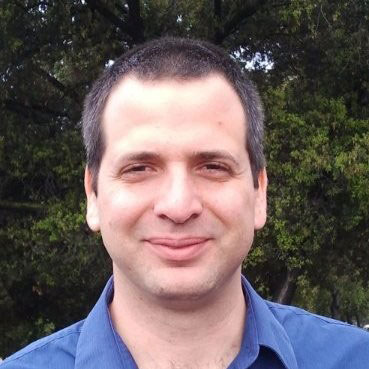Food Systems Podcast 56
In discussion with Guy Ziv
Tuesday, Jan 30, 2024
In this episode Mark Titterington talks to Guy Ziv, Professor in Socio-Environmental Systems at the School of Geography, University of Leeds, and coordinator of the European Horizon project BESTMAP. They discuss this four-year programme, which covers seven countries in the European Union and Serbia, and how this can inform the future CAP to increase the effectiveness of sustainability policies.
The podcast was recorded prior to the Research Lessons to Inform Future CAP Reform event, supported by the Forum and the RISE Foundation on 7 February, 2024, which features the latest BESTMAP findings.
Here is a summary of the conversation.
How effective do you think the CAP is or has been in achieving its environmental and biodiversity goals?
This is a complex and contested issue. On a positive note, the last CAP reform shifted towards sustainability funding with 35% of funds allocated to climate, biodiversity and environmental measures. There are specific schemes for countries to directly target environmental improvements. On the other hand, there are issues. Direct payments based on farm size may unintentionally incentivize more intensive production. The effectiveness of the CAP in different regions varies; there is limited adoption.
We modelled decision-making by farmers, and this shows potential to increase the uptake if you reduce bureaucracy.
BESTMAP looks to be one of the most innovative studies undertaken. Can you summarise the methodology and any other insights from the way you went about gathering the information?
It was a mixed method approach, combining social science, interviews, surveys and data analysis and modelling. We asked farmers deep questions about adoption of environmental schemes, and used surveys which showed us farmers’ preferences. We had data from member states, including from the Land Parcel Identification System (LPIS).
We built biophysical models which show the impact of environmental schemes on the landscape scale and the farm scale. For example, we looked at models for farmland birds, the effect on water quality, food production and soil carbon.
The approach was to model farmer decision-making and scale up, then analyse the transferability of the models.
What changes or improvements would you like to see in European agriculture policies to better support both farmers and the environment?
There is not enough incentive for farmers, there is not enough money for doing it. The financial incentives were constructed for “costs incurred, income foregone”, so you only pay farmers what they lose by implementing environmental schemes. We are thinking about “public money for public goods” – can we pay farmers for the public goods they’re providing? Also, environmental schemes are too complex, there is generally not enough support for farmers to choose the right thing.
What could the conference in February achieve?
The idea is to make suggestions about how to improve the CAP and the role of models in the process. The summary of the discussions at the conference and recommendations will be presented in the Forum for the Future of Agriculture March Annual Conference.
With change ahead, what are the key priorities for a potential new Commissioner?
One challenge is lack of evidence, and it would be great if the Commission promotes more work like we have done. Also promote the more innovative eco schemes, and especially monitoring of the impact. DG Agri has to make policy despite the imperfect scientific basis. If they allow more expert knowledge into the process, have more local and devolved policy-making, the policies will be more robust.
If you have found this short summary interesting, there’s lots more to hear in the full 22-minute conversation. It is available now on iTunes, Podbean or Spotify or on this website.

Guy Ziv
Guy Ziv is a Professor in Socio-Environmental Systems at the School of Geography. His current research focuses on combining...see more
